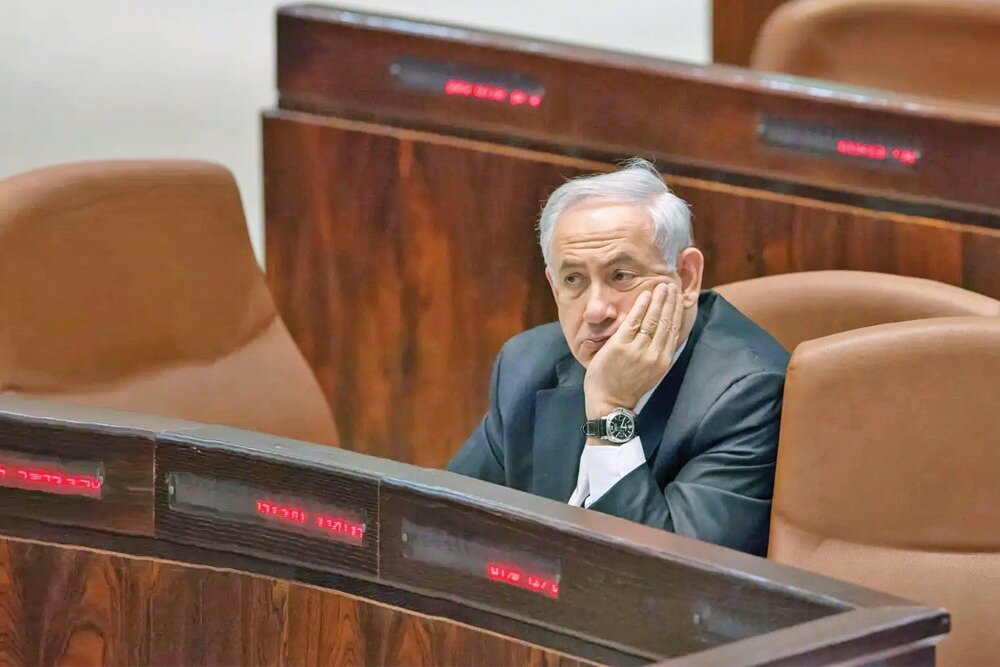Israeli dead end

TEHRAN – Israel is in limbo, pure and simple. It faces an Iran bent on making economic or nuclear progress. And the Israelis seem to have accepted these brute facts.
Having woken up to the fact that Iran weathered the storm of the Trump-era “maximum pressure,” Israeli officials began rehashing claims and issuing threats against Iran that they have never been able to put into practice.
In a rare comment on American foreign policy, Chief of Staff of Israel’s armed forces Aviv Kochavi warned the U.S. new president, Joe Biden, against rejoining the 2015 Iran nuclear deal –formally known as the Joint Comprehensive Plan of Action (JCPOA) – and even threatened Iran with military action.
“With the changing of the administration in the United States, the Iranians have said they want to return to the previous agreement. I want to state my position, the position that I give to all my colleagues when I meet them around the world: Returning to the 2015 nuclear agreement or even to an agreement that is similar but with a few improvements is a bad thing, and it is not the right thing to do,” Kochavi said.
The top Israeli general went so far as to say that he ordered Israel’s army to prepare offensive options against Iran.
“I have instructed the IDF to prepare several operational plans in addition to existing ones, which we will develop throughout the coming year. The power to initiate them lies with the political echelon. However, the offensive options need to be prepared, ready, and on the table,” Kochavi said in remarks delivered at the Israeli Institute for National Security Studies 14th Annual International Conference.
Iran protested these belligerent remarks in a letter to United Nations Secretary-General Antonio Guterres.
“The Israeli regime has recently not only doubled down on its provocative, warmongering statements against the Islamic Republic of Iran but has also been planning to carry out its belligerent threats against Iran,” the letter, penned by Iran’s Ambassador to the UN Majid Takht-Ravanchi in early February, said.
“The most recent example of such threats is the remarks made by the Israeli military chief of staff on January 26, 2021, in which, in addition to frivolous claims on Iran’s peaceful nuclear program, he also said that Israeli armed forces are preparing some operational plans, in addition to those already in place, to develop them for the next year, because these plans ‘need to be on the table’,” the ambassador continued.
The Israeli threats against Iran were issued after the Israelis felt the U.S.'s danger coming back into compliance with its obligations under the JCPOA, though the Biden administrations never outlined any detailed plan to rejoin the nuclear deal. However, the Israelis seem to think that it’s only a matter of time before the U.S. rejoins the JCPOA.
This calculation has put Israel in a much worse position than it was before the U.S. withdrawal from the JCPOA. Before Trump’s withdrawal, the Israelis, namely Prime Minister Benjamin Netanyahu, worked their butts off to kill the JCPOA. They succeeded in convincing former U.S. President Donald Trump to pull the U.S. out of the JCPOA. Trump withdrew from the deal and re-imposed a wide range of economic sanctions on Iran within the framework of the so-called “maximum pressure” campaign.
Netanyahu and his allies were over the moon with Trump’s decision to cease U.S. participation in the JCPOA, thinking that the nuclear deal will be a thing of the past. At that time, there was a speculation in Tel Aviv and elsewhere that “the Islamic Republic is in a strategic impasse that makes it face specific scenarios: either rolling towards the downfall of the regime, or its submission to American demands, or a popular unrest that leads to one of the two previous scenarios,” according to Ali Haidar, a columnist for the Lebanese Al-Akbar newspaper.
Any assessment other than that was considered subjective and expressing more hopes than facts, Haidar said in an article for Al-Akhbar.
But now, Haidar noted, the situation has dramatically changed in Iran’s favor in light of two facts: Iran has weathered the economic storm, with international estimates projecting Iran’s economy to achieve a positive growth rate this year.
“Second, on the strategic level, is that [Leader of the Islamic Revolution Ayatollah] Khamenei has set critical conditions for returning to the nuclear deal, which is the lifting of sanctions in practice rather than verbally, and for the Iranian people to feel that,” the columnist continued.
These facts have sent the Israelis scrambling to find a solution to their impasse. The Israelis first sought to up the ante by issuing military threats to Iran. They threatened to attack Iran in an effort to impede any U.S. plan to “rush back” into the JCPOA. The Israeli threats elicited a strong response from several Iranian officials across the political spectrum, with the latest response from Iran’s top diplomat Mohammad Javad Zarif.
The Iranian foreign minister warned Israel against Iran's attack, saying that such a move would amount to “committing suicide.”
“If Israel attacks Iran, this will amount to committing suicide,” Zarif said in an interview with the Lebanese television network Al Manar.
Aside from their boisterous threats, Israelis know that their military options against Iran, if any, are limited. They have always sought to entangle the U.S. in a war with Iran.
After four years of a bromance with the Trump administration, the Israeli leaders find themselves in a corner; they neither can issue credible military threats nor can prevent the West from pursuing diplomacy with Iran. And this is a trouble of their own making. The JCPOA was working well, but Netanyahu contributed to undercutting it. Now they face the prospect of an Iran emerging stronger than ever from economic pressure while significantly advancing its nuclear program.
All this while Israel does not enjoy the luxury of having real options to prevent Iran from moving forward.
Comments